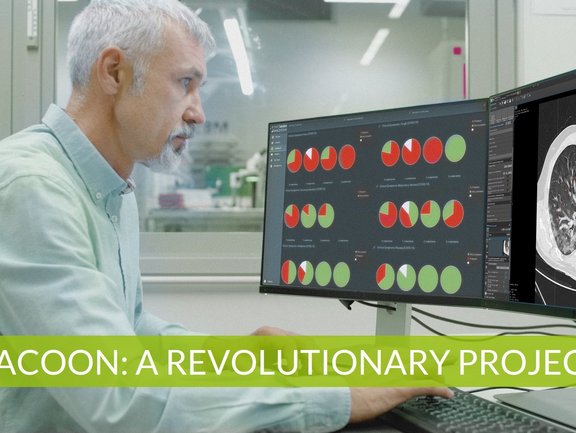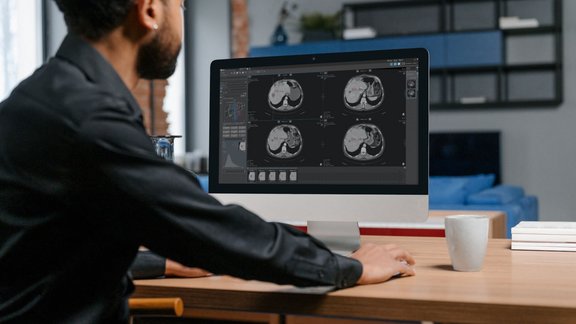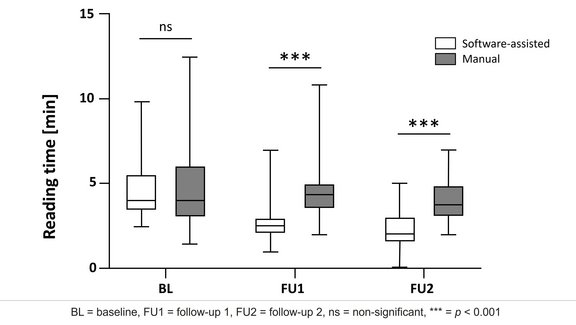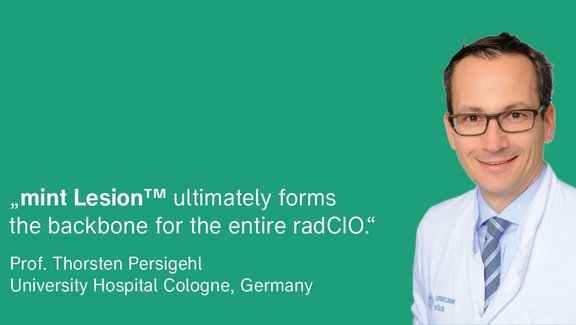The idea of aggregating clinical data from different sources, processing it in a structured way and using it for joint research may not be new, but actually implementing it has mostly been wishful thinking. Until now: the RACOON Radiological Cooperative Network project has succeeded in connecting all 36 university hospitals in Germany in a joint research initiative, where data on COVID-19 and other lung diseases from all sites can be collected and analyzed.
Research and cooperation partners in this innovative project include the German Cancer Research Center (DKFZ), the Fraunhofer Institute MEVIS, the Technical University of Darmstadt, the company ImFusion and us, Mint Medical. mint Lesion™ plays a central role in the project: right from the first report, mint Lesion™ links any measured value to the context of its creation, defining its clinical significance and thus ensuring traceability, quality and long-term usability. The structured mint-findings will be used to create a comprehensive, machine-readable dataset for pandemic research, which will form the backbone of the project. On the one hand, this consists of a central, cloud-based mint Lesion™ instance for multicenter provision and analysis of anonymized data. On the other hand, it consists of decentralized instances that will be made available to all university hospitals and also enable the processing of local data in non-anonymized form so that they can be used in routine clinical processes of diagnostics and therapy.
"RACOON forms a sustainable collaboration framework in the university medicine network. By bringing together a Germany-wide partner network of all university hospital radiology departments and highly qualified technology and research partners, a hitherto unique infrastructure basis for enabling collaborative projects has been created. RACOON creates a significantly higher efficiency for collaborative research projects and can enable previously unattainable research goals," affirms Dr. Andreas Bucher, Head of the AI Research Division at the University Hospital Frankfurt. Structured reporting makes it possible to create a holistic overview that would not be possible with unstructured data on a project of this scale. With this mass of high-quality and AI-compatible data, there are a variety of research opportunities from which patients will benefit in the future.

RACOON: A revolutionary project with all German university hospitals in the University Medicine Network (NUM)
Related Resources
Related Resources

Software-Assisted CT Assessment Outperforms Manual Methods in Oncology Study
A recent study conducted at UKE Hamburg compared manual and software-assisted assessments of computed tomography (CT) scans according to iRECIST…

UKE Hamburg: Study Shows that Software-Assisted Assessments Enhance iRECIST Evaluation
This research study [1] aimed to compare the feasibility and reliability of manual versus software-assisted assessments of computed tomography (CT)…

Challenges and Opportunities of Setting Up a Comprehensive Oncological Imaging Database
In an exclusive interview with Prof. Dr. Thorsten Persigehl, a leading expert in Oncological Imaging, we delved into the transformative radCIO project…